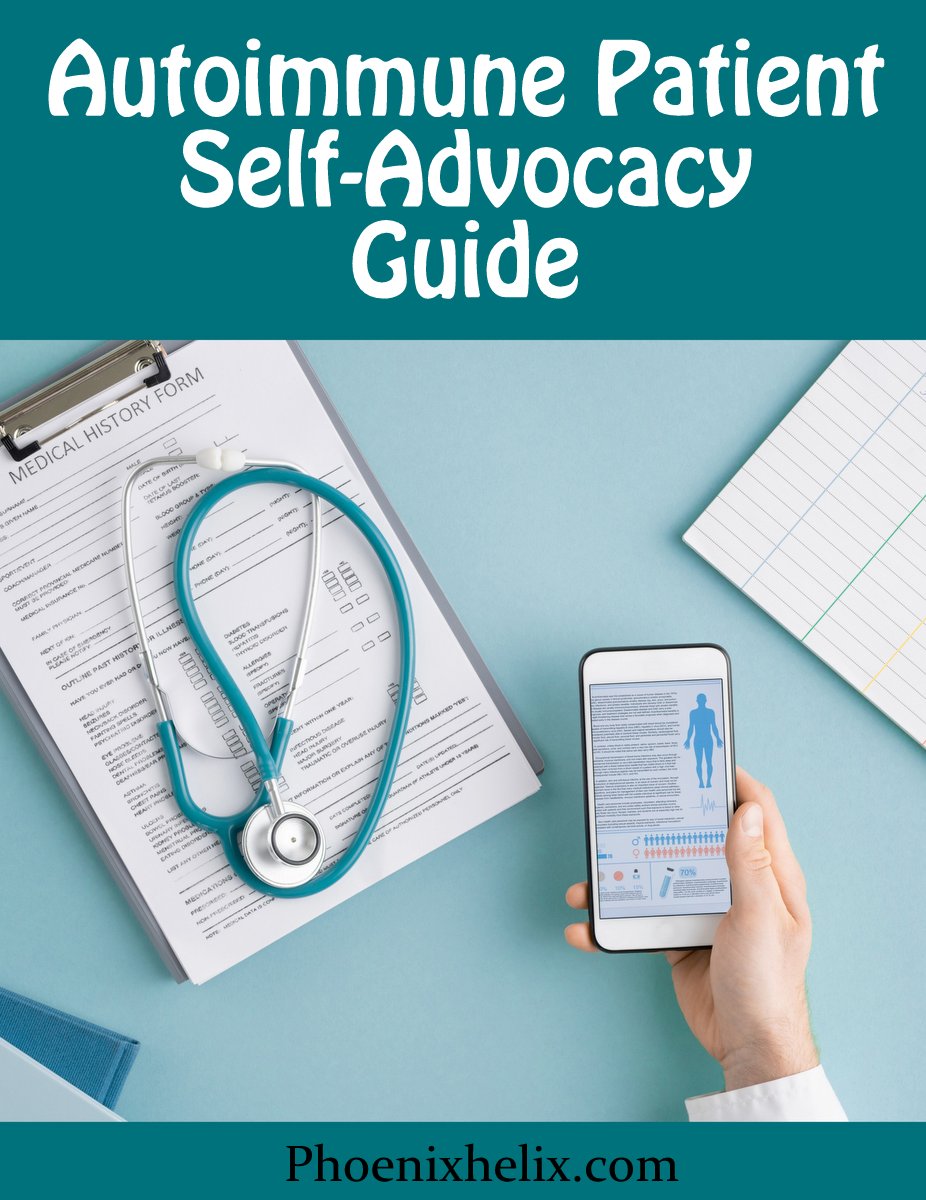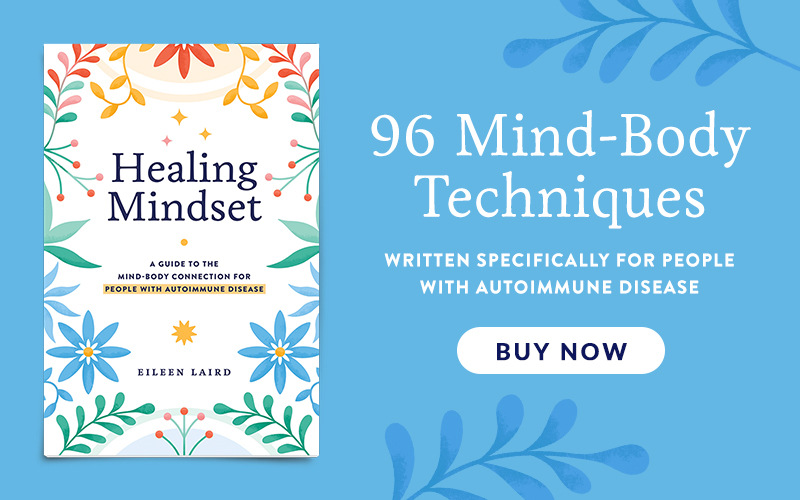
“The most underutilized resource in all of healthcare is the patient.”
~ Dave deBronkart
How to get the autoimmune healthcare you need
Autoimmune disease is complex. Whether we’re seeking a diagnosis, or trying to navigate the medical system after a diagnosis, neither is easy. Obstacles are common, and self-advocacy is often necessary. After 12 years living with rheumatoid arthritis, here are my top 15 tips for getting the healthcare we all need.
1. Be an empowered autoimmune patient
What does it mean to be an empowered patient? It’s understanding that you are the most important person on your healthcare team. No one cares more about your health than you, and no one knows more about your body than you. This doesn’t mean we don’t need help. Medical providers have skills and education we need to live our healthiest lives. The best doctor-patient relationships are mutually respectful. You respect their skills. They respect your knowledge. You see each other as partners in your medical care.
2. Keep a symptom journal
The more clarity you have about your own health, the more clarity you can bring to your medical appointments. A symptom journal is a simple but powerful tool for self-awareness. Here’s an article tutorial. And here’s an app: Symple.
3. Bring a supportive friend or family member to important medical appointments
Medical anxiety is something many of us experience. Appointments can be stressful under any circumstances due to busy offices, difficulty getting appointments, and uncomfortable symptoms. If you’ve had bad experiences with doctors in the past, fear can compound that stress. A friend can help in many ways. First, they provide comfort – we’re no longer facing this stress alone. Second, we tend to feel more confident with a trusted friend by our side. Third, they can help during the medical appointment itself when a lot of information gets shared quickly. A friend can help remember and clarify information and also ask questions and advocate for you if necessary. Decide in advance if you simply want your friend to listen and take notes, or if you may want them to speak up for you. You won’t necessarily need a friend for every medical appointment, but for the important ones, their presence can be invaluable.
4. Be compassionate and respectful, and expect the same in return
Most doctors choose their profession because they have a true desire to help people. Modern medicine makes this difficult. Treatments are guided by insurance coverage rather than physician recommendations, and many doctors are on a treatment treadmill where they only have 5-15 minutes with each patient, in spite of the fact that many illnesses (like autoimmune disease) are increasingly complex. Physician burnout is the result, where doctors feel emotionally exhausted, ineffective, and they stop seeing their patients as individuals. If you’ve been treated poorly by a doctor in the past, this may be why.
Our attitude when we enter the doctor’s office can sometimes help. Remember that emotions are contagious, and your doctor is human just like you. If we walk into their office already feeling angry due to negative medical experiences in our past, the new doctor is likely to mimic our anger, and we’re much less likely to get quality care.
Try to approach each new practitioner fresh with the hope that they can and will help you. Smile and thank them for seeing you. Be clear about your symptoms, your questions, and the help you hope to receive. Try to meet each other as people. This isn’t a guarantee of good medical care, but it increases the likelihood. And hopefully, the compassion and respect you show them will be mirrored back to you.
5. Share information without being overwhelming
I mentioned above that no one knows your body better than you, which means you have vital information that your healthcare provider needs. That said, if you show up to your appointment with a binder of notes and research, your doctor won’t have time to review it. Instead, bring a short list of vital details:
- What are your current symptoms?
- When did they first appear (and disappear and reappear if applicable)?
- Is there anything that makes you feel better or worse?
- What tests and treatments have already been tried?
- If you have visible symptoms during an autoimmune flare, it can be helpful to take pictures during the flare and bring those photos to the doctor’s appointment, since the flare may pass before your appointment.
6. Bring a list of the top three things you hope to achieve in that appointment
Since appointment times are limited, this allows you to set the agenda. Always begin with your top priority. Is there a question you want answered? A symptom you want addressed? A medication you’d like changed? A test you’d like ordered? A referral you need? Etc.
7. Ask for what you need: referrals, tests, treatments
The best medical professionals automatically offer these as appropriate, but not always. Doctors are overworked and may not think of everything. They also don’t know everything. So, don’t be afraid to ask for these yourself. Part of being an empowered patient is being educated about our own needs. If you think something may help you, request it.
8. If they say no
If a doctor refuses to give you the tests, referrals, or treatments you feel you need, ask them to put a note in your chart indicating that they refused. Sometimes, this is enough to change their mind. If not, seek a second (or third or fourth) opinion. We have the right to pursue the care we need. With autoimmune disease, it takes an average of four years and four doctors to get a medical diagnosis. And once diagnosed, care is complex and many patients benefit from a team of providers.
9. Be persistent
If you feel that a doctor has given up on you, don’t give up on yourself. Keep searching until you find a doctor (and ideally a team of healthcare providers) who are willing and able to help you.
Another way we need to be persistent is getting an appointment when most modern medical offices no longer pick up the phone. Instead, they have voicemail systems where you leave a message and someone is supposed to call you back. If you miss the call, you can’t make an appointment. If the medical office is understaffed, they can’t keep up with the messages so they may never return your call. When I run into these obstacles and cannot make a medical appointment by phone, I go in-person to the doctor’s office to make my appointment. This is inconvenient, but it gets me an appointment faster. Also, in emergencies, when I need to be seen right away, I will show up at a doctor’s office when it first opens. If I’m already one of their patients, they will often squeeze me in.
10. Your right of refusal
Patient self-advocacy isn’t just about getting the care we need, it’s also about choosing the care we want. Just because something is recommended doesn’t mean we need to accept. Ideally, all medical advice benefits the patient. Unfortunately, that’s not always the case. When my doctor recommends something to me, I do my own research. Some of the recommended treatments have saved my life. Others have greatly improved my quality of life. There were some that took trial and error to find a treatment that worked – I don’t fault my doctors for this. Every patient is unique, and trial and error is part of the process. But I have also been offered tests and treatments that weren’t necessary, and research showed had high risks and low benefit. I refused these recommendations. Sadly, Overtreatment is part of healthcare too. Optimal medical care helps without harm.
11. When to fire a doctor
Doctors are often seen as authority figures, and we can forget we are the customer, and they are the service provider. There are many red flags that may cause you to change doctors. If you are receiving poor medical care. If your doctor is refusing the tests, treatments, and referrals you need. If your doctor refuses to believe your symptoms – medical gaslighting is all too common, especially for women, people of color, and other marginalized groups.
You don’t have to tell your doctor you are firing them. You can simply leave their office without scheduling a repeat appointment, and seek a new doctor instead. But you may decide you want to tell them – either in person or in writing – and if your doctor has a boss, you might tell them as well.
12. If you don’t have health insurance
In the United States, we live in an insurance-based model of healthcare, and there are 25 million people without health insurance which is a huge obstacle to medical care. There are no easy solutions to this, but here are some options:
- Local health departments and community care clinics offer healthcare services at low to no cost if you are uninsured.
- Some independent healthcare providers may be willing to reduce their fees and work on a sliding scale. It’s always worth asking.
- Many hospitals have charity care and patient assistance programs.
- If you live near a university or medical training center, they may offer free or reduced care services.
- You can also search for a clinical trial for your diagnosis, and if there’s a new treatment you believe may help you, there is often no cost for participation.
- If you’d like someone to help you navigate your options, patient advocacy organizations exist for that purpose.
13. Patient advocacy organizations
The Patient Advocate Foundation is a non-profit organization which provides case management services and financial aid to Americans with chronic illness. They’re an amazing resource, and I know autoimmune warriors whom they’ve helped.
If you have health insurance, they can help you understand what your policy does and doesn’t cover, help you access the care you need, appeal insurance denials, and they also have a co-pay relief fund.
If you don’t have insurance, they can help you discover what healthcare options are available to you, apply for low-cost health insurance, and they also have financial aid programs.
14. Self-care is part of autoimmune healthcare
Until now, I’ve focused on getting the medical care we need, but a foundation of being an empowered patient is realizing that we also influence our own health. Our daily choices matter. This doesn’t mean we can prevent every autoimmune flare, but we can make choices that reduce inflammation and help calm an overactive immune system. That’s why my website is filled with resources focusing on nutrition, lifestyle, and mindset. Self-care + medical care is a powerful combination.
15. Overwhelm and exhaustion
Reading this article might feel exhausting, especially if you’re battling pain, fatigue, and disability. There’s a term called “ghost job”, coined by author Bruce Feiler. A ghost job is something in your life that requires so much energy that it feels like a full-time job. Autoimmune disease can fit that definition.
When you feel overwhelmed, start with small steps. Choose one way to advocate for yourself today. In time, that advocacy can lead to more support, fewer symptoms, and a life where autoimmune disease is part of your life but no longer feels like your entire life. Self-advocacy is worth the effort.
You May Also Be Interested In
Credit: image at top of page purchased from iStock.









